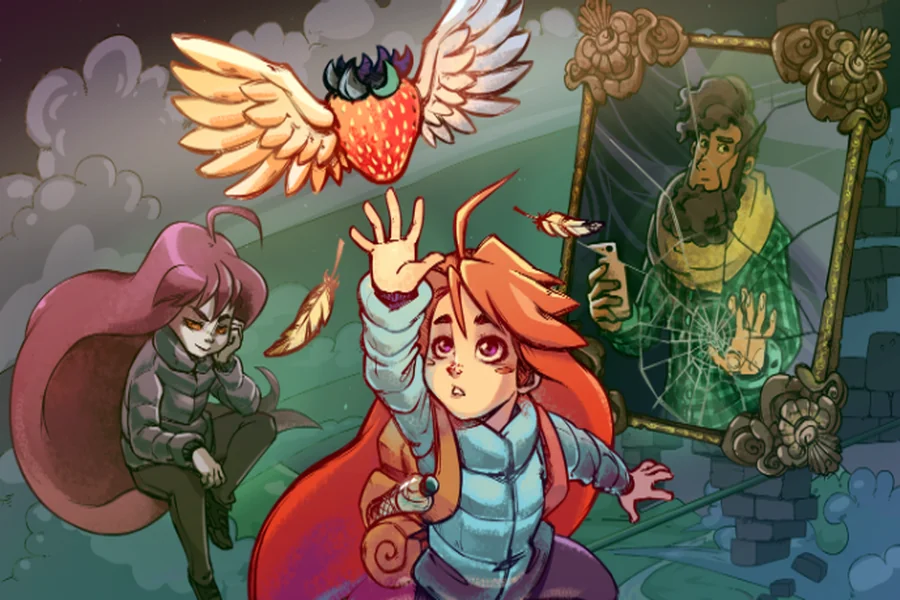Games and Emotional Intelligence: Can Gaming Make Us More Empathetic?

Sometimes I feel that games can develop not only reaction speed or strategic thinking, but also emotional intelligence. Unlike films, where we remain spectators, in games we make decisions and directly influence the storyline. This makes us empathize with the characters more deeply, since their fate depends on our actions. Moreover, the gaming environment often puts us in situations of moral choice, which are rare in real life. All of this creates an experience that can affect the way we perceive the emotions of others.
Story-driven games and empathy
When we play projects like The Last of Us or Life is Strange, we become part of a story where tragedy and hope are closely intertwined. The narrative here works not as a background but as a full-fledged tool for shaping emotions: every decision the player makes affects the fate of the characters. Sometimes it’s a choice between morally difficult options, sometimes it’s a simple action that eventually turns into a chain of dramatic consequences. Players are forced to follow not only the actions but also the emotions of the characters, and at some point they begin to react to them as if they were real people.
This is especially noticeable in games where the story adapts to the player’s choices. For example, in Detroit: Become Human, the fate of the heroes depends on hundreds of small decisions, and gradually a person begins to perceive virtual characters almost like close ones. To complement such an experience, many turn to statistics and player behavior analysis — for this, resources like cs ranking are used, helping to see how different decisions and approaches influence the result. This makes empathy not abstract but supported by data and comparisons: we realize that we are not the only ones facing difficult choices, which makes it easier to understand and accept the emotions of others.
I believe that it is precisely such games that develop in players the skill of thoughtful attention to emotions. When virtual situations make us reflect on the value of life, friendship, or trust, it is no longer just entertainment. It becomes a kind of empathy training that later manifests itself in real life.
Online games and team interaction
In multiplayer games such as CS2 or Overwatch, emotions are expressed not through the storyline but through interaction with real people. Every teammate’s mistake or a well-executed play immediately affects the team’s atmosphere: the joy of victory or the frustration of defeat is felt just as sharply as on a football field. Support in voice chat or, on the contrary, the toxicity of certain players directly influences how the game is perceived and how comfortable the whole team feels.
I believe this is exactly where the ability to control one’s own emotions and take into account the feelings of others is trained, because without it, teamwork collapses. It is important not only to give timely advice or praise for a good round but also to learn to hold back when the situation gets out of control. Such online experiences teach players to switch, remain calm, and maintain an atmosphere of trust.
I often think of examples from professional esports: teams in CS2 or League of Legends devote enormous attention to the emotional preparation of their players. Without it, success in major tournaments is impossible — the stress is too great, the stakes too high. The fact that even coaches and psychologists become part of the roster confirms that emotional intelligence plays a key role in team-based games.
Simulators and social skills
Simulation games such as The Sims or Animal Crossing develop empathy in a different way. Here, players create worlds, take care of characters, and build relationships, and it is through this process that they better understand how emotions work in everyday situations. We see the joy of a character’s good day or the sadness when they are left without attention, and we begin to project these feelings onto real-life relationships.
Even though this is a virtual experience, it gives us a chance to reflect on how actions influence the mood and behavior of others. For example, in The Sims, neglecting a character’s needs leads to arguments and conflicts, while care and support create harmonious relationships. In Animal Crossing, paying attention to neighbors and helping them with small tasks builds an atmosphere of trust and friendship. Such mechanics do more than entertain — they encourage us to think about the fact that emotions always depend on how attentive we are to those around us.
I believe that simulators help us see familiar situations from a new perspective. When a player decides how to build relationships and how to respond to the actions of “others,” they learn to better notice the connection between behavior and emotional response. This turns a simple game into a kind of laboratory for social skills.
Indie games and unique perspectives

Indie projects such as Gris or Celeste deserve special attention, as emotional experiences lie at the heart of their narratives. Here, game mechanics become not just a tool for entertainment but a way of conveying feelings. In Gris, each new ability symbolizes a stage of overcoming grief, while the visual style and music immerse the player in an atmosphere of fragility and the search for inner strength. In Celeste, the story is told through the climb of a mountain, which simultaneously symbolizes the struggle with anxiety and self-acceptance.
These games raise themes of depression, anxiety, and overcoming difficulties, and they do so through gameplay. A character’s mistake or fall becomes a metaphor for inner struggle, while each obstacle overcome feels like a personal victory shared between the player and the protagonist. Unlike major blockbusters, where emotions often serve as an addition to the plot, in indie projects they become the central part of the experience.
Such projects allow us to look at emotions from a different angle and teach us to be more considerate of the states of others. When a player personally goes through virtual hardships, it becomes easier to understand that behind someone’s outward actions there may be a complex internal struggle. And in this, in my view, lies the great value of indie games: they not only expand our understanding of the genre but also help cultivate a more sensitive attitude toward others.
Conclusion
I am convinced that games can influence our emotional intelligence no less than books or films. They draw us into other people’s stories, make us take decisions, and feel responsible for the consequences. This means that gamers gain not only enjoyment from the process but also the opportunity to learn empathy and better understand those around them.








